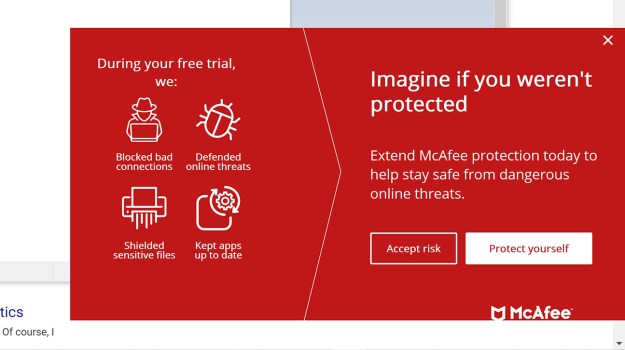This is a post I’ve been meaning to write for weeks, but haven’t had the time, because it would be so involved. But I think I’ll throw out a few thoughts about it, and see if y’all take it up, and then add to the conversation as we go.
I’m prompted to go ahead and do so by a piece Jennifer Rubin had in The Washington Post today. It’s headlined, “We must end the post-truth society.” That’s fairly self-explanatory. It deals with a problem we all know exists. And in this case, she’s dealing not only with the grossly destructive tendency of Trump supporters to believe his lies, but other aspects we see in our culture today, such as all the nonsense about the “war on Christmas.”
All fairly obvious, as I said. We now live in a time in which people utterly reject Daniel Patrick Moynihan’s dictum, “Everyone is entitled to his own opinion, but not to his own facts.” (He wrote it in a column in 1983, although it is apparently based on something James R. Schlesinger had said previously.) When he said it, people across the political spectrum would have nodded, because it’s so obviously true.
But not now. And the word “entitled” is particularly significant here. People out there really, truly think they are entitled to their own facts. After all, they dwell in a universe in which their belief in such “facts” is fully supported and reinforced.
I’ve commented on this before. Everyone has. And I was conscious of the cause of the problem. But recently, I came to realize it, to understand it, to grok it, more fully. And it was as though I hadn’t thought about these things before.
It happened first when I listened to a podcast series from several months ago, called “Rabbit Hole.” If you haven’t listened to it, I wish you would — assuming The New York Times allows you to do so. (Since I’m a subscriber, I’m never sure what is available to non-subscribers.) It’s in eight parts. The most compelling are the first few, which deal in great detail with what happened to a young man named Caleb.
Caleb is a guy who initially perceived reality in a fairly “normal” way (judged from the perspective of my own reality), even though he was having a bit of trouble finding his way in the world I know. Then he got addicted to YouTube. He started watching it most of his waking hours. After he got a job that allowed him to listen to earbuds while working, he did it (or at least listened to it) ALL of his waking hours.
Meanwhile, YouTube was growing and refining its product. They were making the artificial intelligence that underlies its operation smarter and smarter, and better at constantly showing you more of what interests you. We’re all familiar with this, and I suppose that mostly, we appreciate it. It’s nice when I go to listen, say, to the Turtles play “Happy Together,” and YouTube suggests a video I had never seen of the Beatles’ “A Day in the Life.” (Which it may or may not do for you in your reality.) I end up wasting time, but it’s enjoyable.
One day in late 2014, YouTube recommended to Caleb a self-help video by Stefan Molyneux, a self-styled “anarcho-capitalist” who also had a political agenda. He liked what he heard; it seemed to speak particularly relevantly to a confused young man. So YouTube showed him similar things. And more similar things. And it got more and more out there, more and more into the terrain of, as the NYT put it, “conspiracy theories, misogyny and racism.” It essentially said to him, over and over, “Oh, you liked that? Then you’ll love this…”
It became his reality. His only reality, since he had no other sources of information about the world. (He didn’t make time for any other sources.) And he got in deeper and deeper. How this happened is charted quite precisely, because Caleb gave the Times access to his video-watching history. They could trace his descent into his own tailor-made madness clip by clip, hour by hour, day after day. For years.
It’s really something to listen to.
Of course, this was just Caleb’s reality — his, and that of others who were absorbed by the increasingly weird things that he listened to and was shaped by. Each individual, of course, would have a slightly different experience, while at the same time becoming members of new, bogus “communities” of people with similar beliefs in this or that area.
I mentioned this podcast, and recommended it, to friends, who recommended in turn that I go watch “The Great Hack” on Netflix. It examined the same phenomenon from a different angle, the Cambridge Analytica scandal, “in which the personal data of millions of Facebook users were acquired without their consent… predominantly to be used for political advertising.” Data that reflected you through your online habits, using an app called “thisisyourdigitallife.” I recommend that, too. Even if you don’t find it enlightening, at least the graphic effects are cool (such as a person walking down a crowded city street, while bits of data are shown flowing up from every smartphone he passes). Or I thought so.
I’d always been concerned about the thing that was working on Caleb. Back in the 90s, when I was first exploring the Web, I saw that a lot of sites — including newspapers, such as The Wall Street Journal — would invite you to create your own, personalized interface. “Mywsj.com,” or whatever. I found this disturbing, especially when newspapers did it. But I confess I didn’t see how bad things would get. My objection was simply that the point of a newspaper is to provide a community, or a state or a nation with a common set of information about what’s going on — something that in a free country will inevitably lead to fierce debates about what to do in light of the facts, but at least everyone was starting from a common set of facts, a common perception of reality, which at least provided some hope of an arrival at a rational course of action. Facts collected and passed on by professionals with a quasi-religious ethic of accuracy and impartiality, let me add, and curated by editors who had over the years demonstrated skill and insight into current events. (Now watch all the self-appointed media critics go ballistic on that one. Hey, it wasn’t perfect, but man was it superior to what we have now.)
To be a fully prepared citizen, capable of contributing constructively to the public conversation, you needed to see ALL the news, not just the bits that tickled your personal fancy. You needed a sense of the fullness of what was going on.
Now, we have separate realities, millions of them, curated by algorithms to tell us what we want to hear (as opposed to editors, who tended to irritate all of us with the unwelcome information they shared). Everyone on the planet is now an editor and publisher, with power the old-school professionals couldn’t dream of: Each person is able to cast out his or her versions of reality to the entire world, instantaneously. No matter how well- or ill-considered their perceptions are. And each person is informed by sources such as these — the particular ones that each person chooses, or has chosen for him or her by the algorithms.
More than 40 years ago, I enjoyed Carlos Castaneda’s series of books about his apprenticeship under the Yaqui Indian shaman called Don Juan, including a volume titled A Separate Reality. It was fascinating to read of his adventures in that separate universe, and enjoyable (rather than threatening) because I lived in the safe, mundane reality with most people. Castaneda’s universe was shaped by not just Don Juan’s tutelage, but a variety of hallucinogenic drugs. Which I avoided, satisfied simply to read about it. It was a nice escape.
But that was amateur hour compared to what surrounds us today. There are millions of separate realities — one shaped separately for each of us. And some of them are truly wild. Worse, they have rendered any sort of consensus-forming through our system of representative democracy practically impossible.
And that’s how you get things like the mob attacking the Capitol last week. A mob of people absolutely convinced that they were “patriots” saving the republic from something that threatened it. Because that’s the way it is in their respective separate realities.
It’s the Trump brand of reality that’s currently wreaking havoc on our country, appealing to each adherent in a different, personalized way. But of course there are billions of others around the globe.
I’m sort of wary of my own, and perhaps I should be even warier. Just the other day, after the failed revolution, I was noticing how everyone seemed to agree with me about what had happened, more or less, on Twitter. (Which, if you’ve spent decades as an editor fielding reader complaints, causes you to get suspicious.) This happens because they are brought together in a reality shaped by the people and institutional sources I have chosen to follow, and those who have chosen to follow me.
But I’m simultaneously aware that, despite the shocking violence last week, which led even Mike Pence and Mitch McConnell to go ahead and certify Joe’s election (something that would have been utterly unremarkable — would in fact not even have been prominently covered — in the world in which these separate realities did not yet exist), these views are not universally shared. It’s not just the abomination of Joe Wilson and the other members who voted against confirming the election. The almost half of the country that voted for Trump seems to be spread along a vast spectrum, from your Mitt Romney types to your Ted Cruzes. And they have all sorts of verdicts on events, shaped by their distinct online interactions.
Each and every one in his own, separate universe, shaped by its own separate facts. To which he is quite certain he is entitled….





























